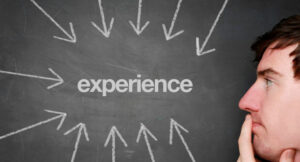Adult education comes in many forms, from evening cooking classes through to college degrees. Basically, education undertaken by an adult post their original education can be considered “adult” education. While continuing education in adult life can pose a number of challenges in finding the time, energy and motivation to undertake the study along with all of life’s other responsibilities, there is an area where adult students possess a great advantage. That advantage is called life experience.
So how does life experience affect the adult learner?
For a start, an adult has been exposed to the wider world and in terms of their work and of their leisure pursuits, and has made some decisions about the environments and activities that they prefer. Therefore, when it comes to choosing a field of study, and making an investment of their time and possibly their (or their employer’s) money, they are operating from a more considered viewpoint than they would if they had less experience.
Adults can be more motivated to increase their level of education and training. Having been out in the world, they have learnt to appreciate the benefits of higher education and the possible consequences from lack of it. They may have identified an area where a lack of skills is hindering their ability to perform their job or where an enhancement of their skills would open up opportunities in their work or personal lives. Adults make a choice to continue their education, it is not imposed upon them as it is earlier in life and as noted above, they are likely to choose a field that attracts them, further facilitating a high level of motivation.
Having spent a greater number of years on the planet, adults have accumulated a wide range of general knowledge. Learning in many areas can be easier when there is already a basic foundation of knowledge. Adults are also able to perceive the practical benefits of further learning and see the alignment between what they are learning and how they can apply new skills in their work and personal life.
As a result of their life experience, over time many adults develop more confidence, stronger interpersonal skills and a better ability to relate to others from a wide range of backgrounds than they may have possessed earlier in life. Not only is this a benefit in the classroom, but an adult will usually have also collected a solid network of personal and professional contacts. These can be very beneficial, not only in assisting in the choice of a field of study and the appropriated educational institution, but also when it comes to researching projects and possible career options. Knowing someone who is associated with a particular industry, sport or community organization and who can be called upon for information, support and advice, can be of enormous benefit to any student.
There is often a perception about adults being less flexible in their thinking than younger people. While this may be true in some instances, life experience can, in fact, engender greater flexibility as a person realizes that it’s not always the first path that you choose that proves the most successful. Many adults have learnt through experience to adopt an open-minded approach in relation to the ways in which they can achieve their personal and professional objectives. Simply undertaking further education demonstrates a greater flexibility of approach than sticking with the status quo.
When considering taking on any form of adult education, it is easy to focus on the challenges it presents. It is well worth while however taking into account the immense benefits which accrue to the adult student simply from their own life experience.

